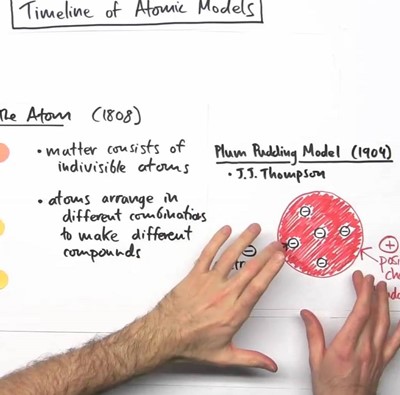
Science teacher Tyler DeWitt uses good public speaking techniques to make science and chemistry interesting for his students.
BY JENNY MAXWELL
I was driving back home from the beach last night, making the trip go faster with a little NPR. Wait Wait...Don't Tell Me had wrapped up, but I was still laughing at Paula Poundstone's prediction for what might happen during the solar eclipse. Then I heard a young teacher talk about the challenge of making science interesting to his teenaged students.
What he was saying sounded so familiar that I stopped trying to top Paula in my head with a joke of my own.
I gave my full attention to Tyler DeWitt instead.
DeWitt teaches high school chemistry and biology. He explained how he changed his approach when a student told him his classes were boring.
What he discovered to be true in his classroom are the very same concepts we teach about public speaking at The Buckley School.
If you want people to care, you have to make your material matter to them.
“Students really struggle to see how any of what they're learning really applies to their lives, really how science is more than a laundry list of memorized definitions and sort of nonsensical equations,” says DeWitt in his NPR interview.
The same goes for adult audiences. A speaker often goes on and on about a topic, thinking the reason for caring is obvious, since it’s obvious to him.
He forgets that it isn’t so clear to the audience. They don’t come to it with his background or built-in passion. To tap into their passion, you have to connect it to the things they know and care about. You have to show, right up front, why your information can be useful for them.
Speak in a way that works for the audience, not in a language they can’t understand.
DeWitt: “If you're involved with science in any way, I urge you to join me...leave out the seriousness. Leave out the jargon. Make me laugh. Make me care. How should you start? Why don't you say listen, let me tell you a story?”
DeWitt uses stories and analogies to make things fun and accessible for students, even as he admits they’ll have to master the technical terms and jargon to pass tests later on. His approach is to first engage them, so they’ll want to dig into the technical side—rather than wall them out with words and language that makes concepts harder to understand.
That is great advice for speaking, too. We put a lot of emphasis on working for the audience. Using language to make your ideas as clear and engaging as possible is one way you do that. We find speakers use technical language and jargon for several reasons—1) out of habit, 2) to prove they know their stuff, or 3) to make something sound fancier than, perhaps, it is. None of those, you'll notice, involves working to help the people who are listening to you.
 Still from one of Tyler DeWitt's science videos
Still from one of Tyler DeWitt's science videos
Don’t call it “dumbing down.”
DeWitt: “There's always this tension between presenting something in an engaging way and then this sort of other side of oh, no, you couldn't possibly say that because it's not completely correct. And that really frustrates me because in science, there is no perfectly correct explanation for anything. At every level of scientific information, we're presenting only part of the story. And we need to understand that we need to present what is relevant and what is accessible.”
Again, it struck me how true this is for every topic in every profession. Experts we work with also tangle themselves up in the details—very important details, sometimes. They lose sight of getting the group on board with the fundamental concept.
It’s always a balance and not always easy to strike. How much detail is needed? Which details are critical? It’s important, though, for a speaker to consider this rather that make a presentation that's an information dump.
Also, I find that the very people who call it "dumbing down" usually learn it takes a lot of mental effort and smarts to make a topic clear for everyone.
Even teachers are selling
This NPR story also made me think about another thing we teach at The Buckley School: Every time you speak, you’re persuading. Sometimes, trainers and professors in our classes push back. “No,” they say, “we’re teaching, not selling.”
To which we say: You have to sell them on the idea that you have something worth learning.
DeWitt goes there, too. Here’s the NPR story I heard in full. Here’s a link to DeWitt’s YouTube channel full of science you can understand.
And here’s a TED Talk he gave on the subject of inspired teaching:






